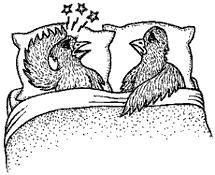News from academe.

Myths of History
The legendary mass suicide at Masada may be just that--legendary. The story of the mountaintop where outnumbered Jewish rebels are said to have committed suicide rather than give in to a Roman siege--chronicled by first century historian Flavius Josephus--has been a part of popular Jewish history for centuries; the site is now one of Israel's most heavily visited tourist attractions. In the 1960s, eminent Israeli archaeologist Yigael Yadin claimed to have found the bones of 960 martyrs there, thus confirming Josephus' account of their deaths. But the current issue of the Biblical Archaeology Review calls Yadin's conclusions--and his scholarly procedures--into question. In the cover story, Joseph Zias, former curator of archaeology and anthropology at the Israel Antiquities Authority, claims that the bones Yadin found belonged to Roman soldiers--and that Yadin knew it. Zias says Yadin misrepresented and suppressed evidence, including the fact that pig bones were found alongside the skeletons he claimed belonged to the Jews. (Jews would not have been likely to eat pork, which is not kosher.) Accompanying articles explore other Masada-related confusions: Josephus' text is ambiguous about where the martyrs actually fell, and the site itself was probably a center of political administration rather than a civilian refuge.
Bad Timing
Just in time for millennium celebrations, theoretical physicist Julian Barbour will publish the results of more than 30 years of reflection, in which he argues that time as we understand it does not exist. Even before the book's publication, the claim has stirred up controversy among theoretical physicists. Barbour bases his thesis on a highly abstract but oddly common-sensical application of quantum mechanics that amounts to taking literally the implications of the fact that a synonym for "infinite" is "timeless." The practical implications for things such as train schedules, magazine deadlines, and the minimum wage have not even begun to be contemplated.

Unfeathered Nests
Scientists at the University of Turku in Finland have established that air pollution can hamper the sex drive of birds. According to an article published in November in the British magazine New Scientist, Tapio Eeva and his colleagues report that because pollutants from a copper smelter in the town of Harjavalta dull the plumage of local great tits, they are unable to perform a courtship dance that relies on the display of bright feathers. Worse, toxins from the plant have greatly reduced the availability of a staple of the tits' diet: green caterpillars. Without caterpillars, the tits cannot produce the bright yellow breast feathers they need to do the dance and thus cannot attract mates.
Fifth Wheel
Physicists may also be on the verge of discovering the fifth dimension. This dimension's theoretical existence was first posited in the 1920s by the German mathematicians Theodor Kaluza and Oskar Klein, who hypothesized that "each point of normal space is actually a loop in [the] fifth dimension." They thought the fifth dimension also accounted for forces such as gravity and electromagnetism. In October the Times Higher Education Supplement reported that, thanks to advances in supercollider technology that enable the precise calibration of subatomic quantum energy and computer programs that are able to model the behavior of this energy with previously unheard-of speed and precision, we may soon have a glimpse of the real thing. "Some physicists," the paper reports, "have suggested that we might one day unroll such a dimension [and] travel along it." But others are skeptical. "Traveling along [the fifth dimension]," says one, "wouldn't get you anywhere."
Melville and the Whale
As Herman Melville once famously asked in Moby-Dick, why don't whales collapse under the pressure of all the water they swim under? According to a law of physics called Boyle's law, the pressure times the volume of a gas is always a constant--increasing pressure makes volume decrease, and vice versa. In the fall issue of American Scholar, Rutgers physicist Grace Marmor Spruch reveals the answer. As Melville pointed out, if a sperm whale can spend more than an hour swimming at depths of up to 6,000 feet, and a sperm whale is composed mostly of gas (air-filled lungs and blubber), then Boyle's law would dictate that, as Spruch puts it, "a whale of regulation size at the surface should, at the pressures a thousand fathoms down, decrease its volume to the size of a bathtub!"--becoming a "miniwhale." But, in fact, the whale's gaseous chambers (i.e., his lungs) are not particularly large to begin with. They do collapse on a long dive, but the viscera move into the space. In short, most of the whale is incompressible.
Faster, Pussycats! Cook! Cook!
Students at the Rhode Island School of Design have unveiled the "kitchen of the future." The utopian prototype, called the Universal Kitchen, is designed for maximum efficiency in cooking and cleaning: The 400 steps it now takes to prepare a modest dinner in an ordinary kitchen would be reduced to 100. Its oven would perform all the functions of a microwave, a broiler, and a conventional oven, as well as steam-cooking and steam-cleaning. According to Jane Langmuir, director of the project, "water and heat come together and create a totally new appliance." The model is currently on display at the Cooper-Hewitt Museum in New York City. If it's ever built, the kitchen will come in two sizes, "min" and "max."
Dead Letters ...
The world's oldest and largest university press--Oxford--has just announced that it is canceling its poetry list. According to the Guardian, Oxford, which is, after Faber and Faber, the leading publisher of contemporary poetry in Britain, has cut loose its living poets, including such respected figures as Craig Raine and D.J. Enright. The dead poets Oxford publishes--including Lord Byron, Edmund Spenser, and William Wordsworth--will remain in print.
... and the Living Arts
The Modern Language Association has commissioned a documentary on the history of oral performance, from Homer to poetry slams--raucous readings in which the quality of poems is judged by the ferocity of audience response. Some critics find the popularity of the events an encouraging sign in a media-saturated age. But others--notably Harold Bloom and Helen Vendler--view the rise of the slam with alarm. Bloom, after reading the work of some contest winners, declared them "of a badness not to be believed."